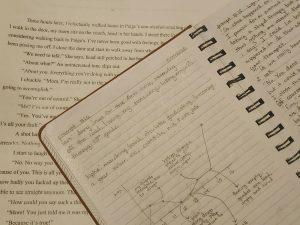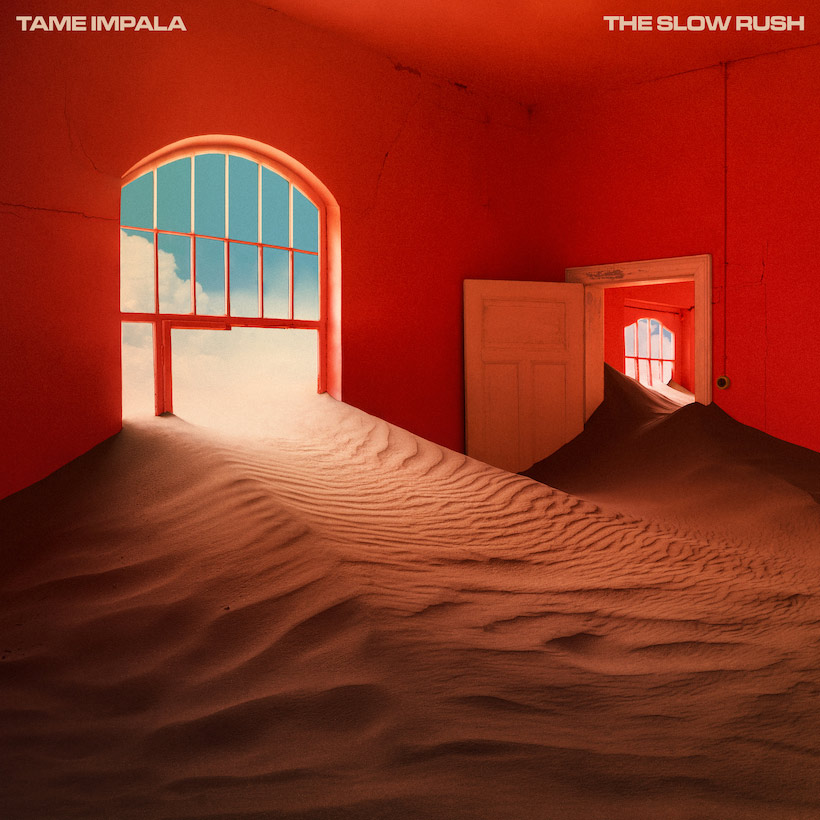Tame Impala-The Slow Rush: Album Review
March 2, 2020

Kevin Parker is the musical mastermind behind the psychedelic rock/pop outfit Tame Impala. Hailing from Perth, Australia, he’s been invested in music since he was young. First picking up the drums and learning guitar from his father, music has been with Parker his entire life. Though being a band, Tame Impala’s music and albums are solely written, recorded, and produced by Parker himself, however, Parker plays with a full five-piece band for live sets.

Every Tame Impala studio album released so far (Innerspeaker, Lonerism, Currents, and The Slow Rush)
Parker’s fourth studio album under the Tame Impala pseudonym, The Slow Rush was released on February 14th, 2020. Tame Impala’s last album was the critically acclaimed Currents in 2015. The release date and title of the album were announced on October 28th, 2019, along with the single, “It Might Be Time.” This and other singles provided a different sound for Parker, featuring some of the same dreamy synthesizers from Currents, but adding more acoustic layering.
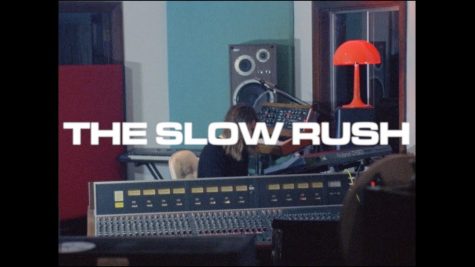
The Slow Rush as an album explores the fleeting concept of time. This is evident with the album’s opener, “One More Year,” an entrancing song who’s instrumental consists of a reverberated and distorted vocal snippet of the song’s title. This song has Parker singing about acknowledging how fleeting time is, but not caring about its limiting factors and living life to its fullest extent.

“Borderline” was originally released during Tame Impala’s Headlining Coachella performance in April of 2019, but Parker reworked it into a more complete song, removing its bridge and adding more sonic layers with heavier bass and drum loops. The song is remarkably catchy, revolving on a four-bar drum and synth loop and added psychedelic interludes.
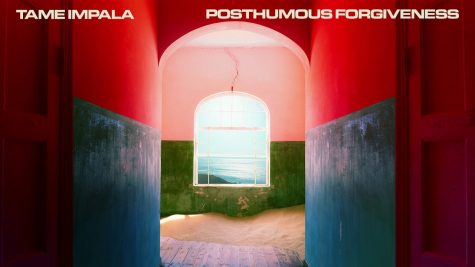
“Posthumous Forgiveness,” is the most important song on the album, and might share that position in Tame Impala’s discography. The song is about Parker’s tempestuous relationship with his father, who passed away in 2010 from lung cancer. In the track’s first half, Parker speaks his struggle to accept the distance his father shared with him while he was still alive, with lyrics like, “But you decided to take all your sorrys to the grave.” The “Forgiveness” in the title comes in the second half of the song, with a key change and more upbeat sounding synths. Parker admits how he wishes his father, who spent time in the music industry, could have been alive to see how far Tame Impala has gone. “I wanna tell you about my life, wanna play you all my songs/Learn the words, sing along.”
This is instantly transitioned into “Breathe Deeper,” which seems to be the thesis of Tame Impala’s new sound, featuring spacey synths, groovy basslines, incredibly tight drums, and catchy house pianos. Towards the end of the track, just when you think it’s shown you all it has to offer, radio static is heard which leads into a short refrain, and an instrumental breakdown to conclude the track.
“Breathe Deeper” is complimented with my personal favorite off the album, the much darker “Tomorrow’s Dust.” It opens with a beautiful acoustic guitar that remains throughout the track and serves as a beacon of optimism in the mix while fighting to be heard over the noise surrounding it. Just before the chorus, a haunting guitar plays a catchy rhythm, which is then contrasted during the chorus with bright synths playing the same rhythm.

The last quarter of the album is a disappointment in comparison to what preceded it. Up until this point, the album seems to have already shown all its cards to the listener. The main highlight of this leg of the album is very catchy “Is It True.” The song revolves around a driving bassline, that’s accompanied by extremely polished drums. Guitars come in during the chorus to complement the mix and blend very nicely with one of the most low-key songs the album has to offer.
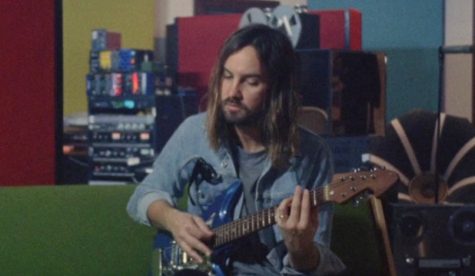
And finally, we are left with “One More Hour,” and as the album’s final track, it’s an obvious companion to the opener. This song is the longest on the record and sees Parker looking back on all that has happened in his life get him up to this point. There is a slow and eventual build-up to the track’s climax, beginning with a staccato piano, and leading into a symphony of strings, synthesizers, heavy drums, and wailing guitars. The guitars I see as a call back to Tame Impala’s first two albums which were centered mainly around reverberated guitars, rather than the heavy emphasis on synthesizers we see on this album and Currents, his previous record.
The Slow Rush is a fantastic album of musical bliss that seems to be a true passion project from Kevin Parker. It’s a musical shift from Tame Impala’s last record and the unmitigated ambition that is present on this album is spectacular, and I believe it lives up to the rest of Tame Impala’s diverse yet fantastic discography.






